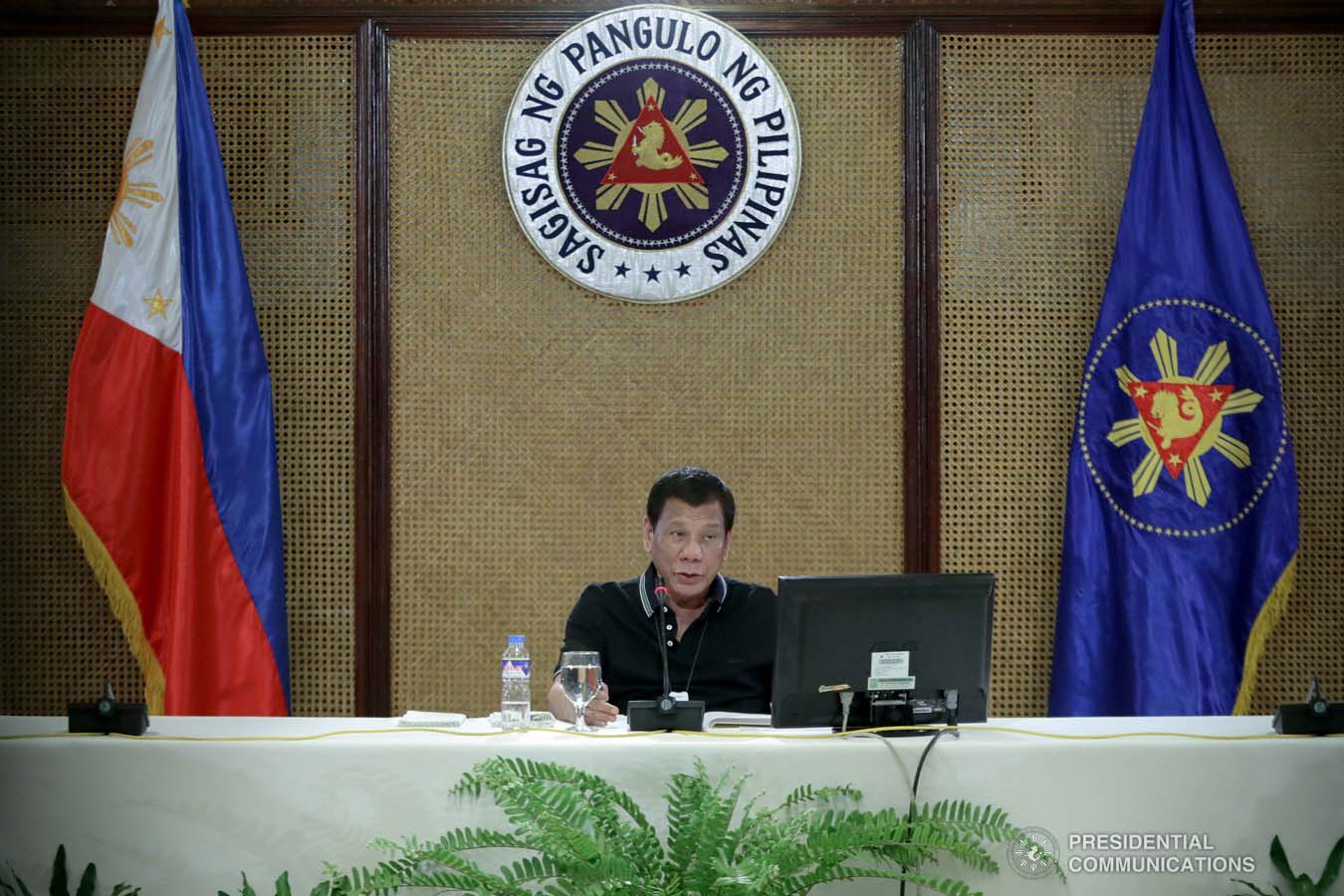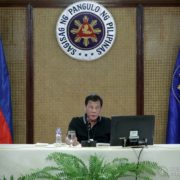
A bill granting President Rodrigo Duterte emergency powers to address the novel coronavirus (COVID-19) in the Philippines has been approved in a House of Representatives committee.
The committee passed House Bill No. 6616 or the “Bayanihan Act of 2020” on Monday, March 23, seeking to declare a national emergency due to the COVID-19 pandemic. The measure also authorizes the president “for a limited period and subject to restrictions” powers that are necessary for dealing with the current health situation in the country.
One of those powers is allowing the president to “direct the operation of privately-owned hospitals and medical and health facilities, hotels, and other similar establishments to house health workers, serve as quarantine areas, quarantine centers, medical relief and aid distribution locations, or other temporary medical facilities.”
The measure further grants the power to purchase essential medical supplies, such as personal protective equipment, venues that may be used as quarantine centers, as well as other goods and services for COVID-19-affected communities.
Duterte would also be able to “reprogram, reallocate, and realign any appropriation” in the 2020 national budget “for whatever purpose the president may deem necessary and desirable to fund measures to address and respond to the COVID-19 emergency.”
He would also be able to implement other preventive measures to curb the spread of COVID-19 such as fast-tracking of testing for persons under investigation and monitoring (PUIs and PUMs), regulation of public and private transport, regulation of traffic on all roads, and ensuring compliance of local government units for the community quarantine standards.
“In order to optimize the efforts of the president to carry out the tasks needed to implement the aforementioned policy, it is imperative to grant him emergency powers subject to such limitations as hereinafter provided,” the bill stated.
‘No intent to abuse special powers’
According to Executive Secretary Salvador Medialdea, Duterte has no intention of abusing his proposed special powers, should both chambers of Congress grant him the authority to act against the threat of COVID-19 in the country.
“We assure Congress and our countrymen that this administration has no intent to abuse the powers we are asking of you today,” he said, addressing the House Committee of the Whole.
He also stressed that Duterte’s proposal is only meant to be a “standby power” to respond to the COVID-19 threat.
“And now I come to the requested power which is stirring some controversies since yesterday and I believe unjustifiably so – the power to take over private establishments. Even as originally worded, the intent of the proposal was simply to grant [the] government a standby power,” Medialdea said.
“It is a power which [we] do not consider necessary to be exercised at all times because the establishments that are needed to deal with this crisis have, to their credit, have mostly been cooperating with government. But we only desire such a power to be legislated because the virus we are up against is so unpredictable and can spread rapidly in a community,” he added.
The executive secretary also assured that the power to temporarily take over private business would only be exercised as a last resort.
“The power to take over is intended merely as a standby power in the event the crisis reaches its worst, when our most critical institutions are nearing total shutdown and government is left with no choice but to take over these establishments,” he said.
Lawyers raise concern
Several lawyers, on the other hand, urged Duterte and Congress to focus on proposing legislation that allocates specific funds for the people.
Attorneys Pacifico Agabin, Tony La Viña, Neri Colmenares, Jojo Lacanilao and Kristina Conti and the Concerned Lawyers for Civil Liberties pointed out that Duterte’s proposal has no definite termination date.
“This limitless grant of emergency powers is tantamount to autocracy,” they said.
They also said that the proposed legislation is not an appropriate response to the COVID-19 threat.
“The issue is not the lack of discipline; thus, the need is not for more draconian powers for the president. What is required is an effective plan to counteract the public health crisis balanced by an appropriate economic response which will provide for the needs of communities under quarantine,” they said.
“Granting the president emergency powers to institute more repressive measures and heavy-handed measures, as what this proposed bill does, is neither a plan nor a solution to the current crisis. Instead of providing relief, this measure may even aggravate the problem,” they added.
As of writing, there are 462 confirmed COVID-19 cases in the country, with 33 fatalities and 18 recoveries.





